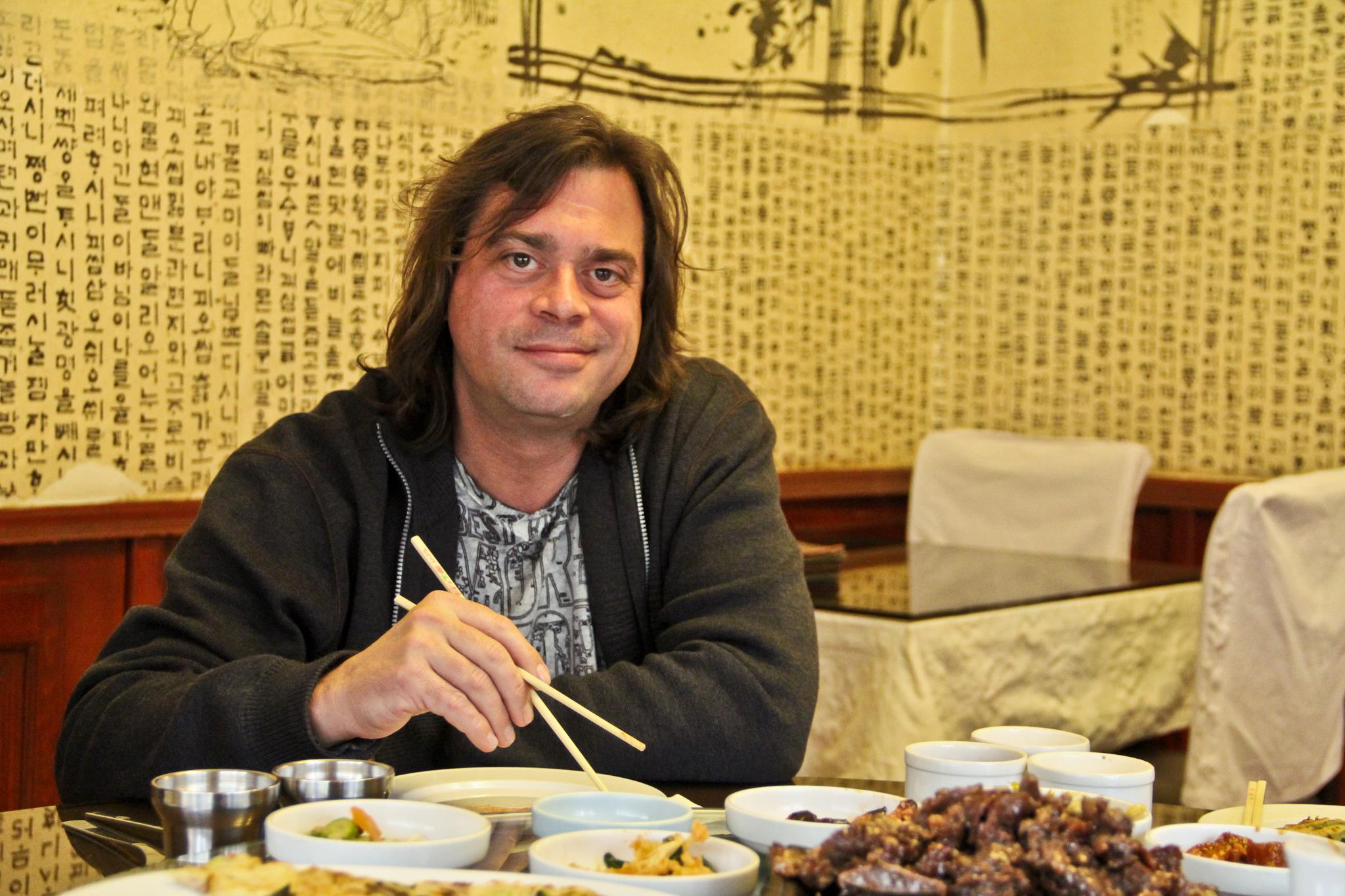
Expatriates often ask where to go for good Egyptian food. I usually direct them to Abou El Sid, but I always caution them that you cannot find authentic Egyptian food in a restaurant. You have to wait for an invitation to experience the real deal, which is exciting when it happens, but is fraught with cross-cultural conundrums.
I remember my first time, the first time I was invited for a proper home-cooked meal. The food was fantastic, and the company convivial, but there was, I have to admit, a certain level of intercultural incompetence on my part. It was the pigeon that did me in.
Sure, when he lived in Paris in the 1920s, Hemingway used to snatch pigeons from the Jardin du Luxembourg and smuggle their corpses out of the park hidden in his son’s baby carriage; but I’d never seen one up close and personal before.
I didn’t mind eating it, but I didn’t know how. The family had a great laugh as I struggled with knife and fork, finally showing me that it’s okay to eat with your fingers. How was I supposed to know?
Food is an important part of a balanced diet; but eating, the way we share food, is equally important. It makes for a cultural balance, one that is not always easily negotiated. There exists today an international, global cuisine, but manners are not yet entirely universal, and even within any given culture, they vary from place to place and up and down the social scale.
The second time I had to deal with the hands vs. knife and fork dilemma was at a lunch that I was hosting. It was a small, summer, beach affair and Amr Diab and his wife Zeina were coming over for the first time. It will not surprise you to know that Amr is a health-conscious guy and I was told he liked fish, which I duly grilled, and which he proceeded to eat with his hands.
This should not have shocked me but at the time, in my cultural naiveté, it did. Today I think nothing of picking up a whole, charcoal-grilled bouri from the souk, bringing it home, and going at it with tooth and claw. It took me a while to get used to this though, because having grown up in the US I was still sort of hung up on the whole knife and fork thing. Where did this come from? Why was I so culturally constipated?
I blame the Byzantines. In the eleventh century one of their princesses married into a Venetian family and introduced the strange custom to Westerners, who until then had been perfectly content eating the way God intended. It took some time though. As late as the seventeenth century writers were making fun of King Henri III of France for favouring a fork, which they found rather effeminate and thus cast into doubt his ability to rule the country with a firm hand.
Even in the mid-nineteenth century in the US some etiquette books eschewed the fork and advocated eating with your hands and a knife, even eating off the knife as long as you didn’t take large mouthfuls and closed your lips tightly over the blade. A hundred years later, if I had tried that as a child, my mother would have sent me to my room for a month.
A couple of years ago I was faced with this challenge once more, this time in Nigeria. I was there for an academic conference and had been invited to lunch by the Dean and Department Chair and it was a rather formal reception. Imagine my consternation when we were served yams and an oily spinach stew and no silverware.
By then I was somewhat more schooled in the ways of the world and bravely took matters in hand, balling up the yam, swiping it through the stew, bringing it to my mouth, and watching the juice run down my arm and into the sleeves of my suit.
Ah well. It is said that you are what you eat, but it is equally true that how you eat is every bit a marker of your identity. For me, that old fork bugaboo just never really went away.



